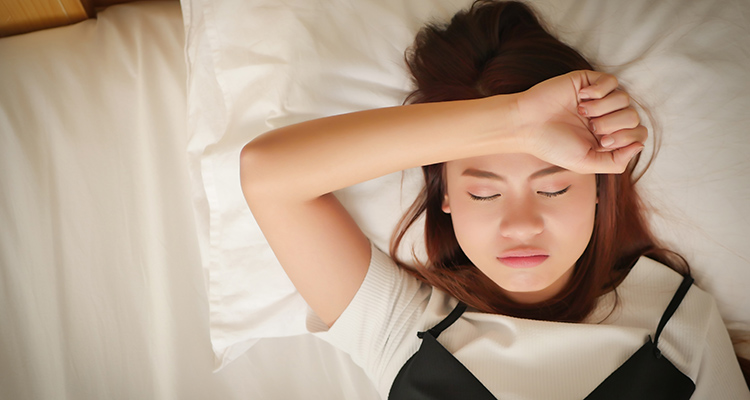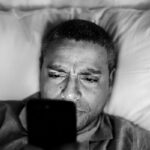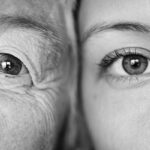What is Primary Insomnia?
According to a 2005 study, adults need at least 7-hours of sleep each night to function optimally the following day. “Short sleep,” also known as “insomnia,” is defined as sleeping fewer than 7-hours at night. According to the CDC, in 2014, 32% of adults (18-24 years old), 38% of adults (25-34 years old), 38% of adults (35-44 years old), 39% of adults (45-54 years old), and 36% of adults (55-64) experienced “short sleep” or insomnia. Although, there was only a small difference (.7%) between males (35.5%) and females (34.8%), who slept less than 7-hours each night.
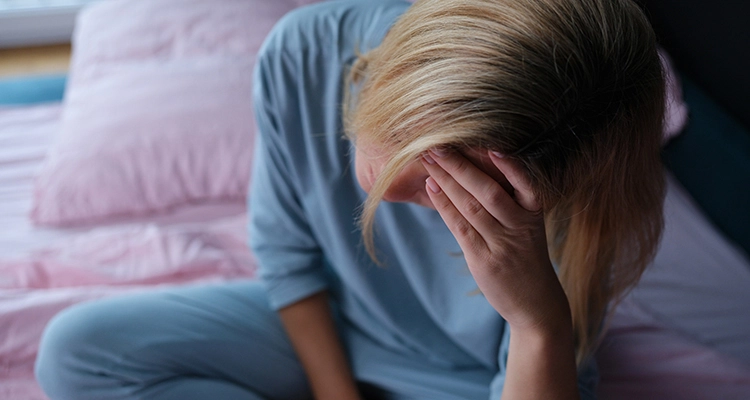
So, what does that mean? It means that only 75% of adults (65-years-old and younger) are experiencing deep, prolonged, sound, and satisfying sleep each night – and that is not good. This statistic suggests that only ¼ of adults are getting quality sleep – i.e., quicker, longer, and more peaceful sleep. More specifically, only 25% of adults are receiving enough sleep to repair, replenish, re-energize, and revitalize their minds and bodies.
Many people, regardless of age, can and will experience “sleeplessness” at one or more points in their lives. So, if you are having a hard time getting proper sleep, you are definitely not alone. Sometimes, there is a “cause” for the insomnia, and sometimes there is not. When insomnia is “caused” by something, it’s referred to as “secondary insomnia.” But, when the “cause” is unknown, it’s referred to as “primary insomnia.” Insomnia can last for a short time or it can be long-term or chronic. It can occur once or it can reoccur many times throughout a person’s life.
And, while insomnia, in any form is distressing, primary insomnia appears to be the most frustrating diagnosis, mainly because the “cause” is unknown or unidentifiable. In other words, doctors, scientists, and researchers may not know why you are suffering from poor sleep quality. The good news is that regardless of the origin of the insomnia, it can be “fixed.” There are things you can proactively do to reduce or eliminate your restless nights. With the right tools, you can get the sleep you’ve been craving!
Content
What’s The Deal with Insomnia?
Well, insomnia is a condition that prevents you from getting “sound sleep.” When insomnia rears its ugly head, you are left with little-to-no sleep from delayed sleep (late nights), restless nights (tossing-and-turning all night), nightmares or night terrors, multiple nighttime wake-ups (frequent potty breaks), “light sleep” (hearing every noise), etc.
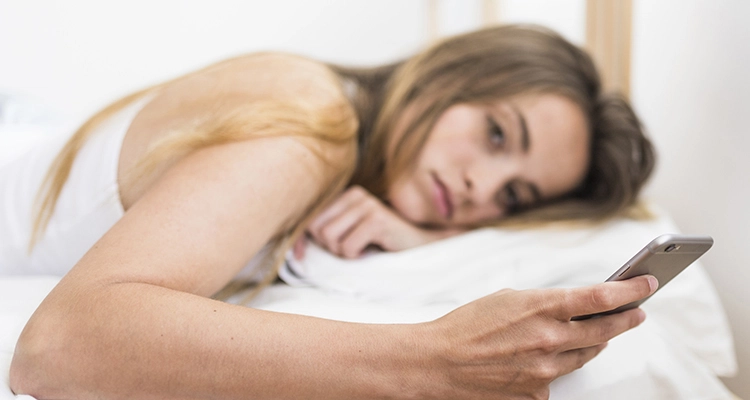
And, once morning arrives, you are left feeling like an emotional ball of confusion. More specifically, you may be tired and lethargic, angry and maybe even a little rage-filled, irritable to the point of being annoying, confused to the point where you are unsure what day or night it is, and/or discouraged and unproductive – with a touch of mental fogginess. Oh, and now you are sleepy.
Are There Different Types of Insomnia?
Yes, there are two different types of insomnia – primary and secondary.
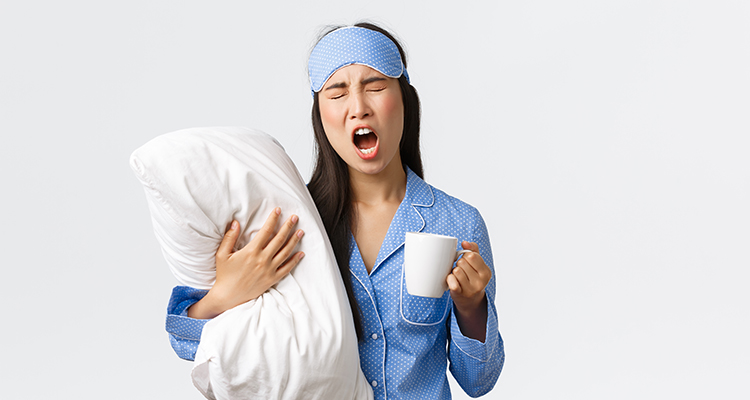
- Primary Insomnia
Primary insomnia has no identifiable “cause.”
If you are having a hard time sleeping longer than 6-hours a night or getting enough sleep to feel “rested” the next day, and your “sleeplessness” or insomnia does not appear to be linked to a health condition or medication, you are most likely experiencing primary insomnia.
- Secondary Insomnia
Unlike primary insomnia, secondary insomnia has a “cause.”
If your poor sleep quality or insomnia is linked to a health condition or medication, such as joint or systemic autoimmune conditions (lupus, rheumatoid arthritis, etc.) chronic pain, muscle weakness, cramps, and/or pain (i.e., fibromyalgia), headaches or migraines, restless leg syndrome (RLS), an infection or virus, antidepressants or anti-anxiety meds, substance abuse, hormonal imbalance, depression, anxiety, stress, etc., you are most likely experiencing secondary insomnia.
Is There Anything Else I Need to Know About Primary Insomnia?
Yes…
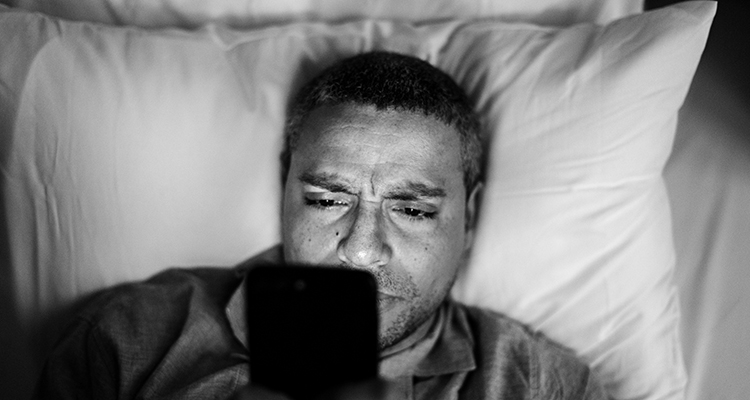
Primary insomnia is a sleep disorder that doesn’t appear to have an “identifiable cause.” It is referred to as “primary” because it is the main condition. In other words, it’s not connected to or “caused” by a health condition or medication. It is the central condition. Primary insomnia can be extremely frustrating because you do not know where the “sleeplessness” is coming from.
And, because you don’t know where it is coming from, you are more prone to worry excessively about it, which creates a cycle of anxiety/depression and even more “sleeplessness” or insomnia. This type of insomnia is usually the hardest to diagnose and treat because its origin is vague or unknown. If you suffer from primary insomnia, it is common to awaken the next morning (if you get any sleep at all) feeling groggy, sleepy, achy, confused or disoriented, fatigued, irritable, angry, anxious, depressed, and/or unmotivated.
The good news is that primary insomnia is common, and can sometimes remedy itself without treatment. But, if most of your nights are spent staring at the ceiling, tossing-and-turning, waking up continuously throughout the night, experiencing poor quality or “light” sleep, being unable to fall back asleep once awakened, and/or awakening too early in the morning, you’ll need a thorough “workup” (i.e., an exam, bloodwork, an overnight sleep study, etc.) by your doctor to be properly diagnosed with insomnia.
What Does It Feel Like to Have Primary Insomnia?
When you suffer from primary insomnia, it’s hard to get quality sleep. More specifically, you may have a hard time falling asleep and/or staying asleep at night. You may also awaken several times during the night and be unable to fall back asleep. After this occurs several times, you may be left with a hefty dose of sleep deprivation. When you’re sleep-deprived, you are literally running on fumes. You lack your normal energy, stamina, patience, or clarity.
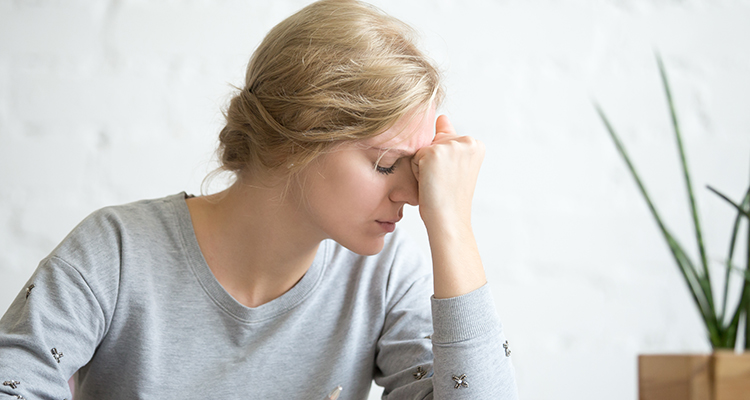
According to researchers, primary insomnia can include the following:
- Daytime fatigue and sleepiness
- Difficulty awakening in the morning
- Sleeping all day and being up all night (hypersomnia)
- Lack of motivation or productivity
- Continuously yawning
- Inability to focus or concentrate
- Constant hunger
- Headaches/migraines
- Sensitivity to noises or lights at bedtime or once asleep
- Low energy
- Irritability
- Jitters or being easily frightened or alarmed
- Hyperactivity
NICKY’S STORY
Nicky Woolf has insomnia. Something in his brain, in the system that triggers sleep, is broken. His condition used to be called “primary insomnia” aka lifelong and chronic, rather than acute and not linked to anxiety, depression, or a wide-range of other factors or “causes.” Nicky has had primary insomnia all of his life.
The longest he has gone without sleep is 11 days – that was brutal, but going three, four, five, or six days without sleep is a pretty common for him. Without reliable pharmaceutical assistance, Nicky will sleep, on average, three or four nights in any given week. The rest of the time, he just lies in bed, locked in his head, in the dark, for hours.
It’s unpredictable. Some weeks Nicky might sleep okay, the next barely at all. Some nights, Nicky struggles from midnight until dawn, finally falling asleep and staying that way for 18-hours or more. Other nights, he drifts off in a relatively brisk two or three hours, only to be irreversibly awakened minutes later by an outside noise.
For as long as Nicky can remember, sleep seemed like something that other people could attain with ease, which made him sizzle with jealousy. It struck Nicky as unfair how sleep always “escapes” him. He has never once fallen asleep the second his head hit the pillow. He has never really napped either. Going to sleep, for Nicky, entails hours of mental battle, a cornucopia of pills, and/or both. Sometimes, nothing works at all.
When Nicky is lying in bed trying to “force” or cajole quiescence from his mind, it races and spins and fills with white noise. Snatches of music heard during the day plays endlessly. Meaningless loops of nonsense words, which he is powerless to stop, pulse through him. His teeth grind, making his jaw ache.
Nicky can often be seen on his time-lapsed video recording, thrashing around like a landed salmon, or spinning around on the bed like a propeller blade, tying the blankets into intractable knots. Mental or physical exhaustion, a long day, having had no sleep the night before or even the night before that – matters. He can go to bed a “walking zombie,” and still sleep may still elude him…hour after hour.
JOAN’S STORY
Joan Didion also has insomnia. More specifically, primary insomnia has plagued her for 30+ years. Joan’s body doesn’t know how to sleep. There’s obviously something very wrong with her. The only way she can fall asleep is to take a pill, and sometimes the only way to stay asleep is to take another pill. Joan hates how groggy the pills make her, but she is helpless and powerless to stop taking them. If she stops, she’ll never sleep.
If Joan stops taking the pills, she will be a complete wreck and fall apart – unable to live up to her responsibilities. Sooner or later, the lack of sleep will make her sick and she will die… This was the story Joan told herself night-after-night under cover of darkness, believing it to be the absolute, immutable truth, not a made-up tale-spinning in her mind.
Upon waking the next morning, Joan would feel the rumblings of anxiety about the night ahead. She’d try to calculate the number of Xanax pills, a benzodiazepine, and her drug of choice that she would need to get some sleep. One? One-and-a-half? Or, could she get by with just a half pill? The panic would build throughout the day and peak as bedtime neared.
Joan’s “sleeplessness” began with a single incident. During childhood, she struggled with mild anxiety about falling asleep, but as an adult, she had always been a pretty solid snoozer. That is until she became 35 and a neurologist prescribed Inderal, a beta-blocker, to treat her persistent migraines. The trouble is beta-blockers can lower your heart rate and blood pressure, and Joan’s baseline for both was already low.
Before long, her usual vitality plummeted and she felt so weak and drained of energy that (without consciously deciding to), she began to make herself stay awake at night, terrified that if she allowed herself to fall asleep, she’d never wake up. This became an increasingly vicious cycle – sleep deprivation, exhaustion, insomnia, followed by even greater exhaustion and mounting terror. Joan was on the verge of collapse.
That’s when her internist prescribed sleeping pills. It wasn’t until she was rushed to the coronary care unit at her local hospital with a dangerously low heart rate that the problem got “sorted out” and she was taken off of Inderal. But, by then Joan was unable to sleep without pharmaceuticals.
She worried constantly about the long-term effects of the drugs on her mind and body. As a result, she would often try the latest, “supposedly” less harmful, wonder drug. When that didn’t work, the natural supplement and herbal sleep aid industry made a “killing” off of her. She meditated, aerobicized, did tai-chi, qi-gong, and yoga, consulted acupuncturists, shrinks, energy healers, and Reiki masters. There were even periods—weeks or even months at a time—when, she miraculously slept – unaided.
But then she’d have a pressing deadline, an overseas trip, a big meeting, and insomnia would return full-blown. Within a night or two, Joan was again the victim of her own dark and doom-filled narrative, abetted by her doctors. The prevailing wisdom was that it was better to take a pill and get some sleep, than to spend the night tossing-and-turning.
Then, one day after Joan returned home from a trip to Italy, she received an email message from a close friend. The message said, “You have to STOP taking Xanax NOW!!!” Joan’s friend was concern sparked from a new study that linked benzodiazepines to higher rates of Alzheimer’s disease – a risk factor that increased with greater exposure to the drug. Joan then learned that the “shut-eye” you get from taking hypnotics is really sedation, not true sleep. Thus, they lack the essential benefits to the body and brain that occur during natural sleep cycles.
Joan came down with a nasty cold at the same time that she decided to taper off of the Xanax. She felt so bad that all she wanted to do was sleep. And she did – largely without pharmaceutical help. That’s when Joan thought to herself, “I’m cured! Free at last!” Eventually, her cold eventually went away and she was still able to sleep without drugs.
However, it didn’t occur to Joan that the “turnaround” had taken place during the holidays. At that time, she had no deadlines and few obligations. But then January rolled around, and with it, a pressing deadline. And, the “sleeplessness” came rushing back, taking possession of her mind and body. A battle raged every night between Joan’s desire to sleep unaided and her fear that she wouldn’t be able to sleep without something. And, after a while, the weeks of grace (sleep) seemed more like a “blip.” Feeling defeated and defective, she reached for her hidden stash of Xanax.
Though she was still determined to sleep “drug-free,” she cut herself some “slack.” Clearly, healing her sleep disorder was going to be a process, not a quick fix. And, she needed help. So, she talked to a holistic doctor and an acupuncturist, who both suggested herbal remedies. These things helped some, as did her morning meditation and soothing bedtime visualization recorded by her psychotherapist. Still, she continued to resort to hypnotics off-and-on, especially when stressed.
Joan needed more help.
So, she decided to try cognitive-behavioral therapy for insomnia (CBT-I). CBT-I has long been the preferred, non-pharmaceutical treatment for insomnia. In fact, multiple studies have found that CBT-I is just as effective as sleeping pills. The basic concept of CBT-I is that primary insomnia stems from learned thoughts and behaviors – things that can be altered or untaught.
Where Does Primary Insomnia Come From?
Primary insomnia appears to be most common in people, who have family members, who suffer from insomnia. And, although primary insomnia does not appear to be “caused” by psychological issues, being a “worrier” or having an “anxious” personality may predispose you to insomnia.
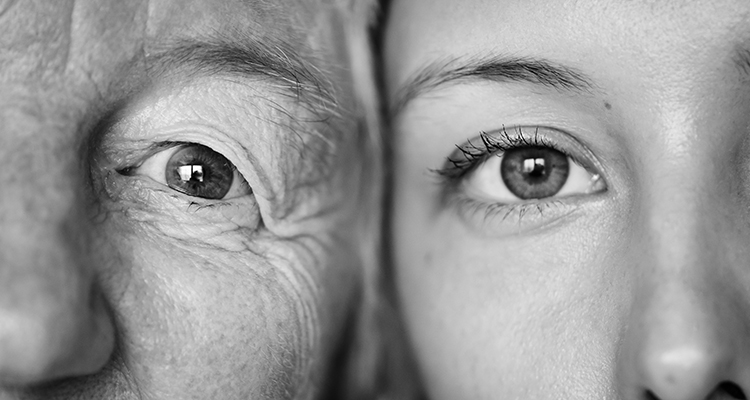
Researchers also suggest that primary insomnia may be linked to irregular or dysfunctional circadian rhythms. Or, entering deeper sleep phases (REM sleep) too early (earlier than is normally expected in people who do not suffer from a sleep disorder). However, the truth is, it is hard for researchers to fully determine if premature deep sleep patterns are the “cause” – or the “effect” of primary insomnia, because sleep deprivation also involves prematurely entering REM sleep.
Is Primary and Secondary Insomnia Treated the Same?
Yes and no…
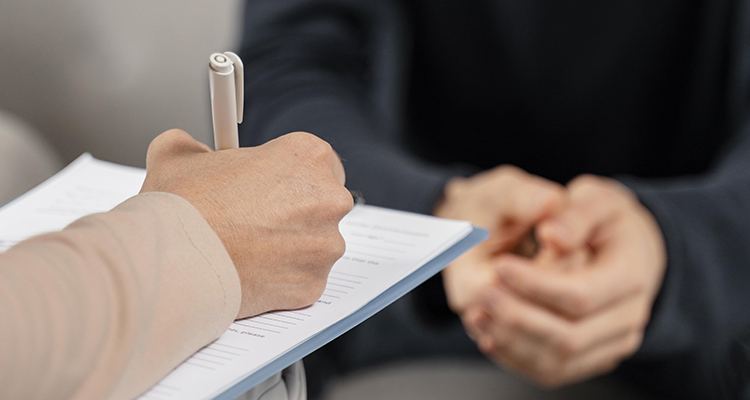
Remember, primary insomnia typically occurs independently of other factors, while secondary insomnia is linked to an underlying health condition or medication that interferes with one’s sleep quality or ability to fall and stay asleep throughout the night. But, even though primary insomnia and secondary insomnia share similar symptoms, treatment for secondary insomnia almost always first involves tweaking or stopping the medication “causing” the “sleeplessness” or addressing your underlying health condition.
How is Primary Insomnia Treated?
Acute episodes of primary insomnia typically resolve within a few days. In this case, you’re likely to be so tired that you naturally fall asleep and stay asleep all night, due to exhaustion. When this occurs, your mind and body get the rest they need to repair, re-energize, and revitalize themselves.

Unfortunately, you also run the risk of falling asleep during inopportune times, such as at work or at school. Then, when bedtime rolls around, you have a hard time falling asleep because you slept most of the day. If you’re having a difficult time getting quality sleep at night and napping during the day only makes your insomnia worse, it’s time to make some lifestyle changes and/or try self-help tips.
Listed below are changes you can make and tips you can try to improve your sleep quality:
- Avoiding caffeine after 12pm
- Shunning alcohol and drugs
- Shutting down your smartphone, computer, laptop, or television about 60-minutes before bed
- Dimming your lights for a couple of hours before you go to sleep
- Completing as many tasks as possible before bed
- Eating a healthy diet, so you don’t awaken in the middle of the night hungry
- Refraining from eating too much right before bed, so you don’t feel uncomfortably bloated
- Exercising (but not too close to bedtime)
- Avoiding daytime napping
- Logging into an online insomnia treatment program, like Somnus Therapy, that will help you get sound sleep through CBT-I practices and other sleepy-time tools
- Taking a melatonin supplement (5mg for adults, per night)
- Engaging in cognitive-behavior therapy (CBT or CBT-I)
- Scheduling acupuncture appointments, getting massages, and/or participating in hypnosis sessions
Note: If these lifestyle changes and/or self-help tips do not improve your insomnia, talk to your doctor about taking a prescription or OTC insomnia medication. Your doctor may prescribe a medication (i.e., antidepressants, antihistamines, or benzodiazepines) to help you sleep.
Understand that it is not ideal to use prescription medications for longer than a few weeks. These medications not only have side-effects, but also do not last long. Non-prescription approaches, on the other hand, tend to have longer-lasting effects – without the unpleasant side-effects.
What Will Happen If I Do Not Address My Primary Insomnia?
Researchers found that if primary insomnia is left unaddressed, it can “cause” your mental and physical health to decline. In fact, a 2018 study found that untreated insomnia is linked to decreased immune system functioning, infections and viruses, high blood pressure, depression, anxiety, obesity, and heart disease.
